(this by the way was an exam question)
For \$F = \sum m(2, 3, 5, 7, 11, 13)\$, I am trying to implement a digital logic circuit using only the following:
- 2:1 MUX (cost: 12, and must use at least one 2:1 MUX)
- 2-input AND gate (cost: 6)
- 2-input OR gate (cost: 6)
- Inverter (cost: 2)
It obviously is pretty easy to implement it without any restrictions -- that is, if I don't care about the cost at all. But if I were to minimize the cost, how should I go about it?
I first simplified \$F\$ using the K-map of it, and I got two representations of \$F\$, \$A\$ being the MSB:
- \$F = BC'D + A'B'C + B'CD + A'CD\$
- \$F = BC'D + A'B'C + B'CD + A'BD\$.
The second representation just looked nice to me because I can group all the product terms by \$B\$ like this:
\$F = BD(A'+C') + B'C(A'+D)\$. And apparently my design is indeed the implementation with the least cost -- I got:
But the way I solved it cannot be used for other expressions in general, and I honestly think I just got lucky. Is there a better way to solve this problem, that is, a general way that guarantees (or at least checks) that the implementation is that of minimal cost?
